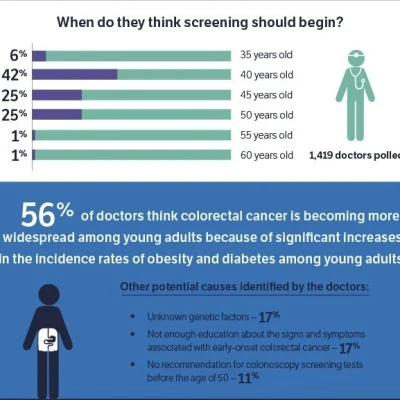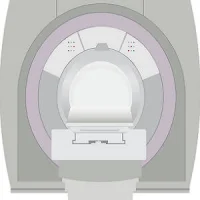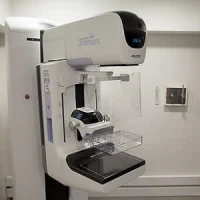Obesity and Diabetes to Blame in Young Patients, says SERMO poll
Two thirds of a poll among
U.S. doctors concluded that colon cancer screening should begin before the age
of 50, while obesity and diabetes are widely blamed for an increase in cases
among younger people.
The poll by SERMO, the social network for physicians and largest health care professional polling company, was conducted to coincide with Colorectal Cancer Awareness Month.
Of the 2,211 U.S. doctors questioned, 64 percent thought that guidelines for when a person should begin regular colon cancer screening should be changed to lower the age.
And a survey of 1,419 of those doctors found that 56 percent think that increased incidences of obesity and diabetes are to blame for colon cancer becoming more widespread among young adults, while 42 percent feel regular screening for colon cancer should begin at age 40. A further 25 percent feel it should begin at 45 and 25 percent said it should begin at age 50;
The SERMO poll was commissioned in response to a recent study in the journal Cancer Medicine that found that nearly 15 percent of colorectal cancer patients are diagnosed before age 50. A separate analysis published in Cancer found that younger patients were more likely to have advanced stage cancer.
“Colon cancer is prevented by screening colonoscopy,” said oncologist Dr. Laura Allen. “Regardless of family history, every person should have a screening colonoscopy at age 50. If there are any symptoms or a family history, patients should discuss this with their personal physician for consideration of colonoscopy at a younger age.”
Many of those 50 and over, for whom regular colorectal screening if recommended by the U.S. Preventive Services Task Force, are still not getting the screening, which can prevent colon cancer. Data from the Centers for Disease Control and Prevention from 2013 shows that 60 percent of whites, 58 percent of African Americans, 51 percent of Asians and 42 percent of Hispanics ages 50 – 75 were up to date on the screening.
The majority of the doctors polled by Sermo feel that non-invasive colonoscopy alternatives can increase colon cancer screening rates. However, there was more confidence in computer tomography colonography (CTC), often called virtual colonoscopy, than Cologuard, the DNA screening for colon cancer that was approved by the FDA last year.
Some 68 percent of those polled said CTC should be covered by Medicare and 76 percent thought that Medicare coverage would increase screening rates. A further 53 percent said that they would not recommend Cologuard as a primary colorectal cancer screening test.










